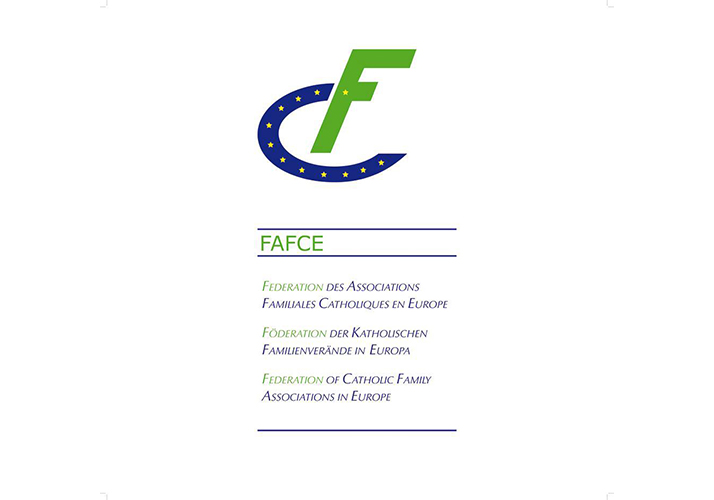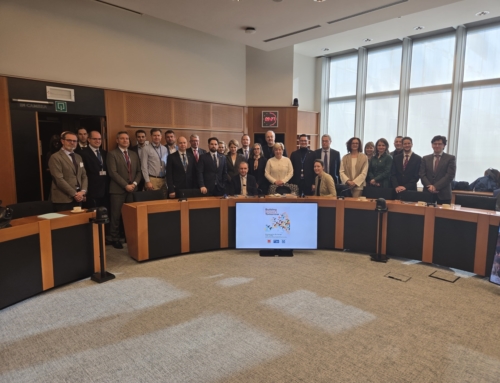On 1st February FAFCE addressed an open letter to the Members of the European Parliament regarding the Lunacek report on an EU LGBT Roadmap. The full letter is available below.
Brussels, 1st February 2014
Dear MEP,
On Tuesday 4 February you will vote on the report on an EU LGBT Roadmap (the “Lunacek report”). Before this vote please let me draw your attention to three points I invite you to consider.
One’s private sex life should not be a guideline for public policies. The EU must ensure the full enjoyment of all fundamental rights by all citizens. Member States implement fundamental rights and guarantee the balance between the right to equal opportunities and other fundamental rights. Whatever choices one makes in one’s private sex life, fundamental rights are the same for all citizens. There should not be a categorization of fundamental rights according to one’s sexual inclinations.
This report is clearly out of the scope of the EU competences and breaches the principle of subsidiarity. It would give new powers to the Commission. The report repeatedly makes proposals that stretch far beyond the EU’s competency in matters such as family law[1], adoption and medically assisted procreation[2]. Moreover, not only does the motion for a resolution interfere in areas that belong to the Member States’ competency but it also goes against the deontology of the European Parliament[3]: All proposals in that resolution are drafted in a way that allows the Commission to act on non-discrimination policy through simple internal measures, bypassing the Council and Parliament although they are the institutions in charge of decisions on anti-discrimination policies.
Approaching fundamental rights by promoting the LGBT agenda and focusing on a category of persons because of their individual sex life does not unite the EU but divides our societies. The issues dealt with in the report need to be addressed at the national level, in the respective cultural and social contexts. During the past days you have probably already received many messages referring to this report. Most of these messages come from citizens across the EU who do not want the EU to interfere in this area.
We all know that the EU is currently facing many challenges. Promoting an agenda based on lifestyle choices that clearly divides the Member States is hardly the best solution to achieve social cohesion within the EU. The European elections are close. If this resolution is adopted, it would trigger populism… and weaken the image of the EU Parliament.
For these reasons I invite you to vote in favour of Amendment 1 that promotes an approach that takes the above into account in a balanced way and advocates for the universality of fundamental rights.
If Amendment 1 is rejected I invite you to vote against amendment 2 and against the whole report as it would breach the principle of subsidiarity and increase social tensions in the EU.
Faithfully yours,
Antoine Renard
President, FAFCE
[1] Para H (iv) “Member States which have adopted legislation on cohabitation, registered partnerships or marriage for same-sex couples should recognise similar provisions adopted by other Member States”.
This is an exclusive Member State Competence. There is no EU competence for this proposal. Member States are free to decide whether or not they introduce such measures. By consequence they are free to determine whether or not they recognise same-sex “marriages” or “civil partnerships” concluded in third countries.
[2] Citation 5 of the Motion for a resolution, Recommendation CM/Rec(2010)5 of the Committee of Ministers of the Council of Europe to member states on measures to combat discrimination on grounds of sexual orientation or gender identity, paras 27 & 28: “member states whose national legislation permits single individuals to adopt children should ensure that the law is applied without discrimination based on sexual orientation or gender identity.(…) Where national law permits assisted reproductive treatment for single women, member states should seek to ensure access to such treatment without discrimination on grounds of sexual orientation.”
[3] Para H (i) of the Motion for a resolution reads “The Commission should produce guidelines to ensure that Directive 2004/38/EC on the right of Union citizens and their family members to move and reside freely within the territory of the Member States, and Directive 2003/86/EC on the right to family reunification, are implemented so as to ensure respect for all forms of families legally recognised under Member States’ national laws,”.
However, when issuing guidelines, the Commission is bound by the content of the legislation that is commented on. Guidelines are not law. Each of the two directives contains a definition of “family members”. The Commission and the CJEU are bound by these definitions: the definitions contained in the two directives do not relate to “all forms of families legally recognized under Member States’ national laws”. Hence, this recommendation is in fact an invitation to the Commission to deliberately misinterpret EU legislation. Such a recommendation would clearly violate the European Parliament’s own deontology.







